Sitting on Your Head Is Normal
Dogs and humans have had symbiotic relationships for thousands of years, likely due to the similar environmental challenges and struggle both species experienced in early history. Because of this, dogs and humans are very loyal to each other. Loyalty has caused dogs to utterly steal human hearts and consider them man’s best friends.
However, this loyalty can sometimes cross lines. Sitting on your head may be an evolutionary trait to keep your family and friends safe, healthy, and happy. Here are our top five reasons your dog may sit on your head.
Your dog may sit on your head if they have an unmet need. This need may be anything from hunger to thirst or the need for a potty break. Ensure that all of your dog’s basic unmet needs, and you may see that your dog stops sitting on your head.
Consider adopting a schedule that your dog can predict. This schedule may prevent your dog from sitting on your head to get your attention since they will be aware that they will get their needs met throughout the day.
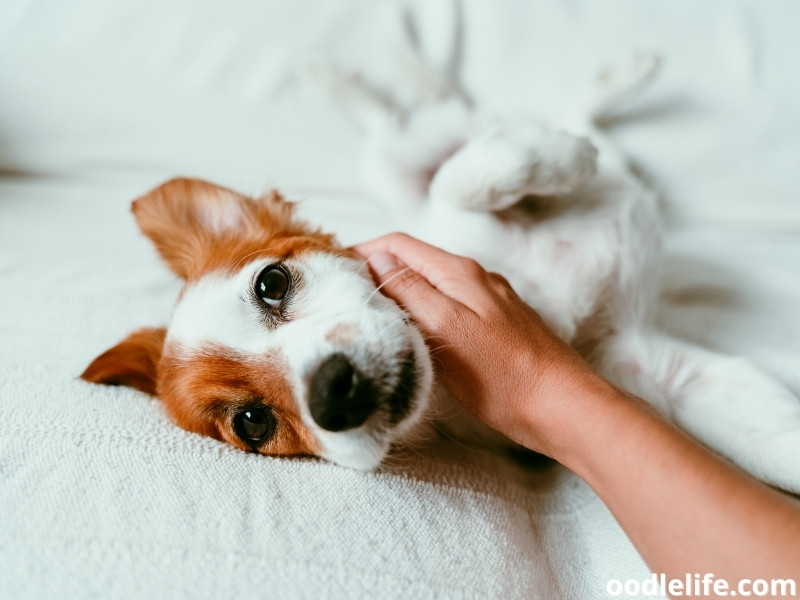
Your dog may sit on your head to watch the area around you. Dogs are fiercely protective of their family, and sitting on you may be a way to keep you safe under their body.
You may want to look around your home and identify anything your dog may see as a potential threat. If your dog feels threatened and wants to keep you safe, they may become attached, clingy, and sit on you as much as possible.
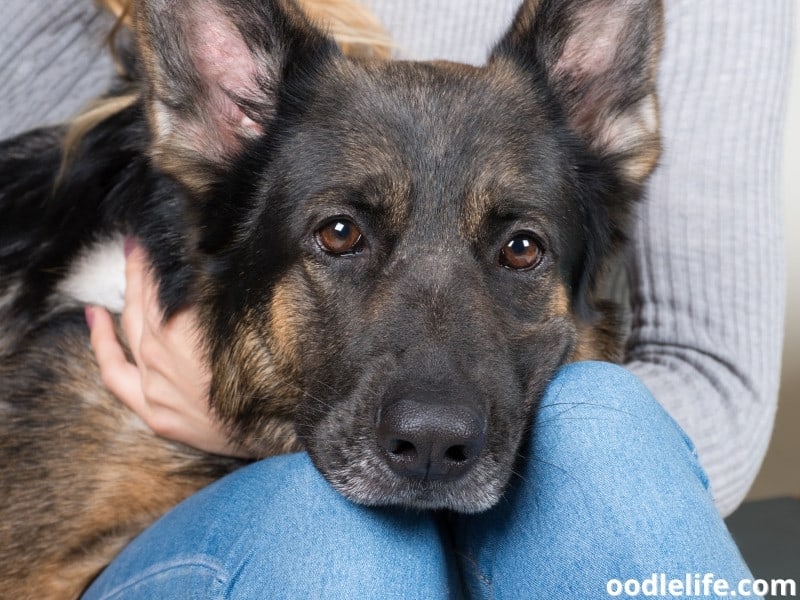
If your dog lacks proper attention, it may do anything possible to capture and hold your attention. A feeling of neglect can manifest in many ways, but most notably can lead to your dog sitting on your head or face.
Consider playing with your dog for at least 15 to 30 minutes daily to keep them from engaging in potentially dangerous behaviors. Some dog breeds may require more attention than others, so you may have to monitor your dog to identify their attention needs.
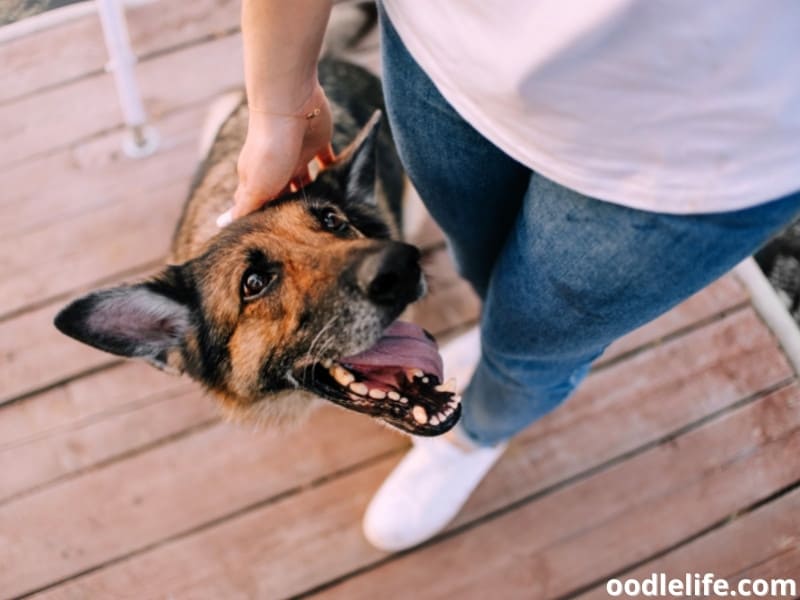
Your dog may sit on your face to get as close to you as possible if they suffer from separation anxiety. Your dog may not want you to leave or may be afraid when you leave. Adopted dogs from a shelter may be more susceptible to separation anxiety with their new owners than those from a breeder.
Consider giving your pet plenty of love and affection, and practice leaving a room for short periods to show them you will not be gone forever. Each time you leave the room, increase the intervals of your absence until your dog is secure without you.
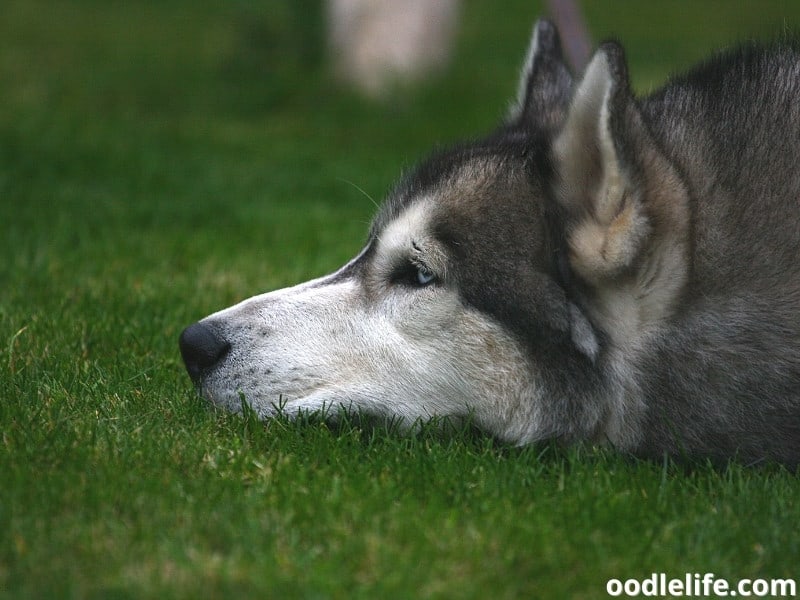
Your dog may be bored and choose that the best option to get your attention is to sit on your head. Have plenty of toys and activities at your dog’s disposal to discourage this behavior. Some of the best toys include the following:
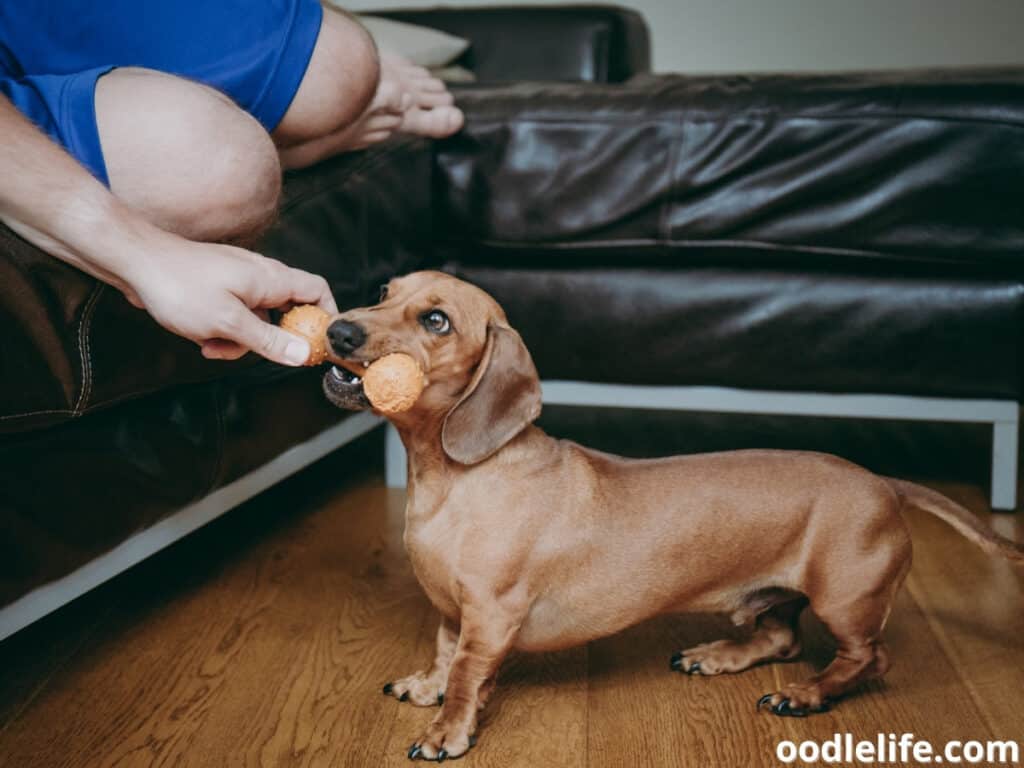
Why Does My Dog Sit On My Head?
Boredom could make a dog do anything. Being intelligent animals that they are, dogs need to be engaged either with mentally or physical activities. In the absence of these, they might look for something to do, and often it’s not something you approve of.
Looking for new and exciting experiences is one of the ways they do to release off their boredom of which is your dog sitting on your head. And you are more likely to experience this situation whenever you’ve left your dog at home all day.
If the reason why your dog sits on your head is boredom, then you may provide him with toys or playthings to occupy them with. Soft, squeaky toys seem to work best as they provide the pseudo-interaction your pooch wants.
Warmth
The truth is that everyone needs a little bit of warmth every once in a while and dogs are no different. It’s part of their nature to seek warmth even right from when pups are given birth to and the fact is that dogs tend to feel safer when they are warm
It’s possible that your dog may have noticed that your head is actually the part of you that releases most warmth which is just what it requires at that moment. In a situation like this, he is likely going to claw its way up to your head.
Why does your Dog Sleep by your Head?
Nothing makes you feel more special than your cuddly little pooch snuggling up next to you, but sometimes, next to you isn’t enough. Even dogs that aren’t supposed to be lap dogs may climb up into your lap for a variety of reasons.
Dog owners with larger dogs will even have them jump up on top of them to show their love or maybe it’s because they want to mark their territory! When you’re wondering why is my dog sitting on top of me as you gasp for breath, well, there are a few reasons to consider. Let’s look at several possible reasons for this very common dog behavior.
There are several dog breeds that are particularly loving and like being very close. Those small dogs like Chihuahuas, Bichon Frises, Shih Tzus, and Maltese aren’t just carried around because they’re small; they’re also very loving, and they become closely bonded (sometimes over bonded) to their owners.
Other larger dogs like mastiffs, Irish setters, and golden retrievers are often very loving dog breeds too. Even Great Danes like to get a little cuddle time every now and again just because they love you.
If your dog jumps up and sits on your chest, that’s one way they show you love, but another way they do this is to sit on your feet. It’s similar to your friend sitting next to you on the couch. Your dog might not jump up on top of you because they prefer the feel of the carpet or the cool texture of the tile, but they’ll sit on your feet instead.
Whether on top of you or on top of your feet, it’s your dog’s way of getting a little physical contact which they find comforting.
Most pet owners appreciate their pooch’s attempts to get close to them whether at their feet or on top of them. They pet their dog and snuggle with them which acts as positive reinforcement for the behavior.
When you give your dog that positive reinforcement, you are effectively rewarding them for the behavior. Your dog has found a comfortable spot to lie down, and you’re telling him that’s a good thing to do which makes him all the more likely to continue doing it.
This is true no matter if your dog sits on your feet or your chest — positive reinforcement is a very effective dog training tool, and they will continue with the behavior as a result.
It’s also true that sometimes your dog just likes to cuddle. They want to bond with you, and it’s something that helps you feel better about life too!
To your dog, you’re part of the pack, and they want to feel close to you. They want to snuggle and get closer to you, the top dog in the pack. Let’s face it, after a long day at the office, nothing feels better than to have someone welcome you home by wanting to be close to you.
In the wild, this type of dog behavior bonds pack members to one another and helps keep the peace. Your dog might not be a wild animal anymore, but those behaviors are still part of their pack mentality.
Another possible reason your dog sits on your lap is to show that they are the dominant one in the pack. They might not feel as though they are dominant over you, but it can be a way to show dominance over other animals in the household.
They come to see your lap as a kind of throne, and the fact that they’re in the catbird’s seat — as the case may be — means they are dominant. You can often tell this is the reason if you find that your dog sitting on your lap every time another animal comes near.
They may even show aggressive behavior toward anyone who comes near you (resource guarding), and if this happens, you’ll want to discourage that type of behavior. You might even need to get a dog trainer to help to get this stopped. Dog training is never a bad idea for any dog as a matter of routine, but it becomes necessary with this type of aggressive behavior.
Another possible reason your dog jumps on your lap is that it’s their way of initiating playtime. This usually happens when you’re on the floor or ground, and your dog sees this as your way of telling them to come to play.
If this is the reason for your dog’s behavior, you’ll likely notice them doing some other behaviors like nuzzling you or licking and whining. You’ll also see some of their playtime body language like having their backside up in the air while the front of their body is down (also known as a “play bow”).
They’re beckoning you to come and play, and why not? Everyone needs a little playtime every now and again.